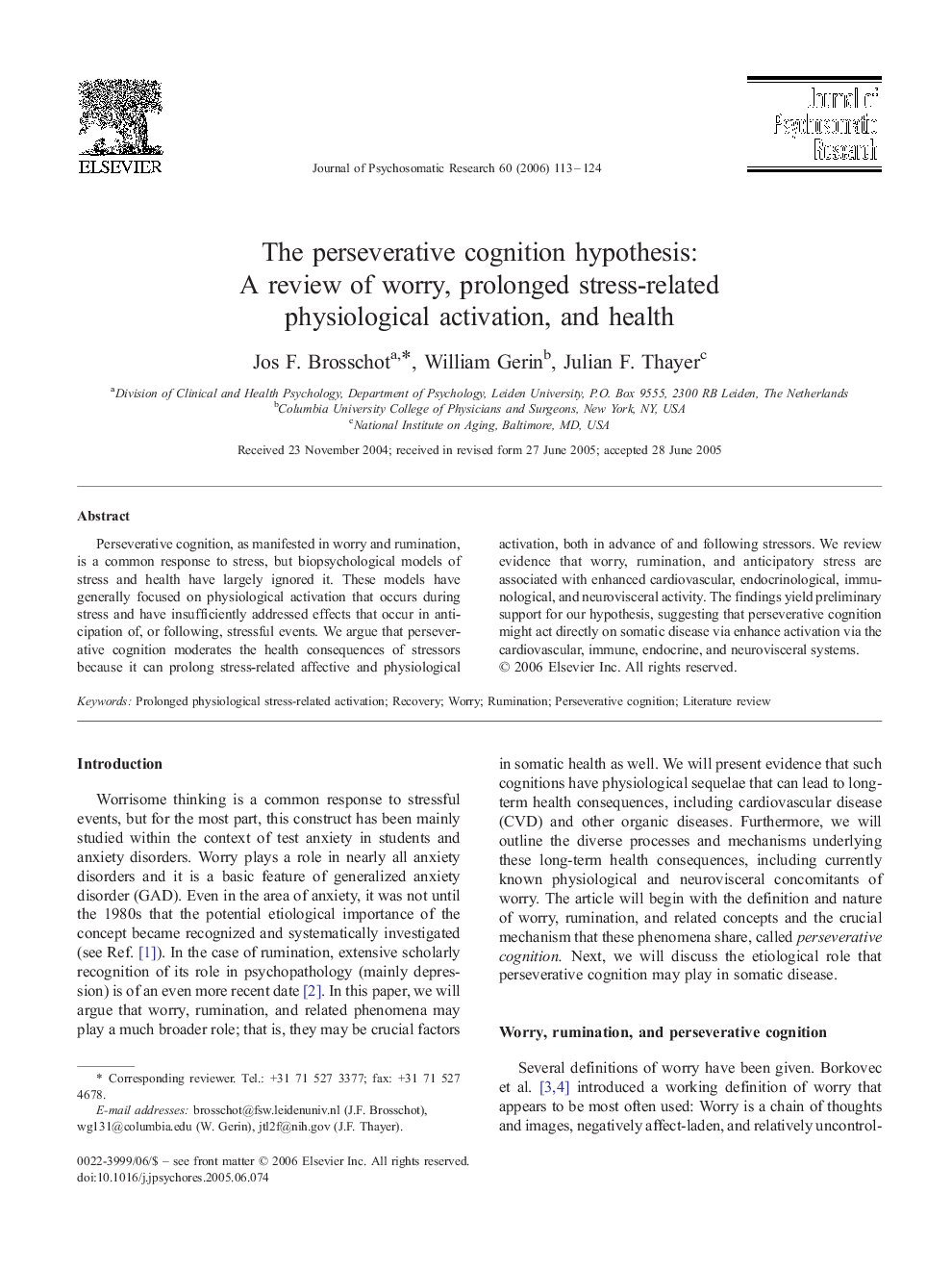| Article ID | Journal | Published Year | Pages | File Type |
|---|---|---|---|---|
| 951050 | Journal of Psychosomatic Research | 2006 | 12 Pages |
Perseverative cognition, as manifested in worry and rumination, is a common response to stress, but biopsychological models of stress and health have largely ignored it. These models have generally focused on physiological activation that occurs during stress and have insufficiently addressed effects that occur in anticipation of, or following, stressful events. We argue that perseverative cognition moderates the health consequences of stressors because it can prolong stress-related affective and physiological activation, both in advance of and following stressors. We review evidence that worry, rumination, and anticipatory stress are associated with enhanced cardiovascular, endocrinological, immunological, and neurovisceral activity. The findings yield preliminary support for our hypothesis, suggesting that perseverative cognition might act directly on somatic disease via enhance activation via the cardiovascular, immune, endocrine, and neurovisceral systems.
